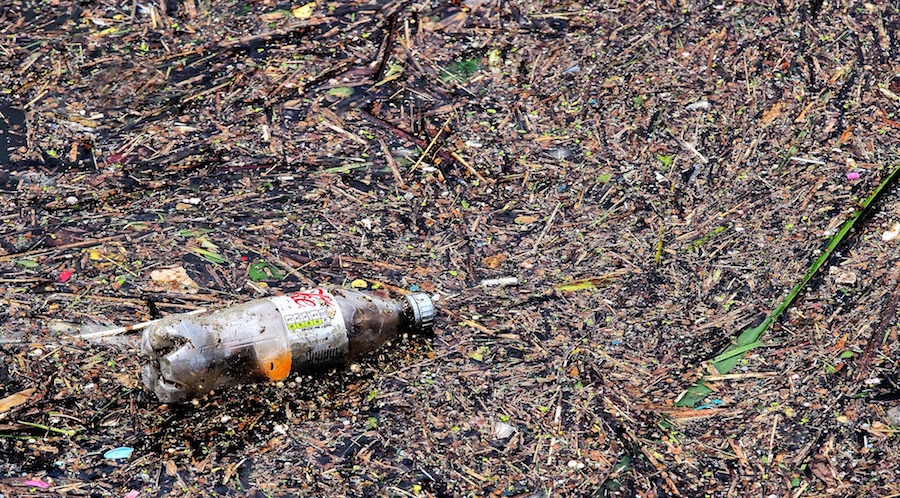 Image by Andrew Martin from Pixabay
Image by Andrew Martin from Pixabay

Cutting cola to cool the planet: on sugar and the climate emergency
Humanity’s love affair with soft drinks is having an insatiable impact on our climate and wild ecosystems. Here, Sustain’s climate and health campaigners argue that turning our back on Big Soda could be one of the easiest ways to reduce our environmental footprint.
Sugar has a colossal carbon footprint, and fizzy drinks carry a heavy portion of this burden. The average Brit consumes over 2 litres of soft drinks per week which is a staggering 63g of sugar per day (2.5 times the recommended daily intake). Sustain have long campaigned, through policy change and local action, on the health impacts of sugar overconsumption, but it’s time to consider their role in creating a climate and nature emergency.
Eroding our teeth and our environment
The biggest factor in the environmental impact of soda is farming the main raw ingredient – sugar. According to the World Wildlife Fund, sugar has “arguably has as great an impact on the environment as any agricultural commodity,” thanks to the significant biodiversity loss caused by conversion of tropical and coastal habitats, and through soil erosion, which hinders soil’s crucial role as a carbon sink.
The UK produces its own sugar – lots in fact. Sugar beet takes up as much farmland in the UK as all our vegetable crops combined. Feedback argues that this is a grave misuse of UK soil and land for growing, since sugar beet relies heavily on pesticides and creates a soil erosion crisis, whilst offering negligible benefit to our food security.
Drinking land and communities dry
Companies such a Coca-Cola have a rich and controversial tradition of exploiting poorer communities in which they set up factories. In San Cristóbal Mexico, the community raised grave concerns about local water exploitation and health. In 2017, the Tamil Nadu region in India successfully boycotted Coca-Cola and Pepsi – accusing the firms of taking so much water from rivers that farmers struggled to irrigate land at a time of severe drought.
Are diet drinks better?
Following the introduction of the Sugar Levy, sales of sugar sweetened drinks in the UK have been dropping. But sweeteners also carry a climate impact. A 2009 study conducted by the Carbon Trust (on behalf of the Coca-Cola company) found that Diet Coke had a modestly lower carbon footprint than classic, but more recent studies have found that since artificial sweeteners reach waterways and can break down under UV light into toxic compounds, any environmental benefit is somewhat undermined.
Unpacking the impact of packaging
Soft drinks are usually packaged in plastic, glass bottles, or aluminium cans. The carbon footprint of these options differs by country, but overall, refillable glass bottles have the lowest footprint, with aluminium cans second and recycled PET third. Coca-Cola alone produces 3m tonnes of plastic packaging a year and City to Sea, the organisation behind the Refill campaign, found plastic bottles to be the most common single use plastic on our seashores.
Drinks companies often tout their products’ recyclability but many are not actually recycled, especially where there is a lack of local recycling infrastructure. The much-heralded plastic bottle deposit return scheme won’t kick off in the UK until 2023, and it won’t tackle the vast carbon footprint of creating plastic in the first place; plastic production is expected to account for 15% of global greenhouse gas emissions by 2050 if consumption trends continue.
Unsavoury tactics by sugary giants
Junk food brands spend 27 times more on advertising than the entire UK Government’s budget for healthy eating campaigns. This advertising and local promotional strategies, such as the Coca-Cola Holiday Truck Tour and sponsoring of iconic landmarks such as the London Eye, are intended to drive increased consumption and its related environmental impact.
In 2019, Coca-Cola ran an ad campaign that sought to redefine single use plastics, running counter to international guidance on which resource use policy is hinged.
London takes a stand
Public resistance to the idea that fizzy drinks deserve to be central in our lives and culture is growing. At the end of 2019, and after steadfast campaigning by Sustain (with the help of some Tooth Fairies), Greenpeace and Extinction Rebellion (among others), Coca Cola unexpectedly cancelled its fossil-fuel guzzling Coke Truck visit to the London O2 Arena, fearing more backlash from health and climate campaigners.
Sustain’s Sugar Smart co-ordinator, Vera Zakharov, offers some climate-friendlier alternatives to sugar-sweetened soda:
- Choose tap water as the most hydrating and climate-friendly beverage.
- Get creative with low sugar/no sugar flavoured beverages, such as water with mint or cucumber, or cold fruit tea.
- Choose pure fruit juice on occasion.
- Choose glass bottles and always recycle. This gives the lowest packaging footprint.
- Only enjoy soft drinks very occasionally as treats and choose ones made with ingredients that have a lower carbon footprint, such as stevia, UK raw honey, barley malt syrup and organic fairtrade cane sugar. Even better, choose a UK-based, small brand.
London Food Link: London Food Link brings together community food enterprises and projects that are working to make good food accessible to everyone in London to help create a healthy, sustainable and ethical food system for all.
Sustain
The Green House
244-254 Cambridge Heath Road
London E2 9DA
020 3559 6777
sustain@sustainweb.org
Sustain advocates food and agriculture policies and practices that enhance the health and welfare of people and animals, improve the working and living environment, promote equity and enrich society and culture.
© Sustain 2026
Registered charity (no. 1018643)
Data privacy & cookies
Icons by Icons8